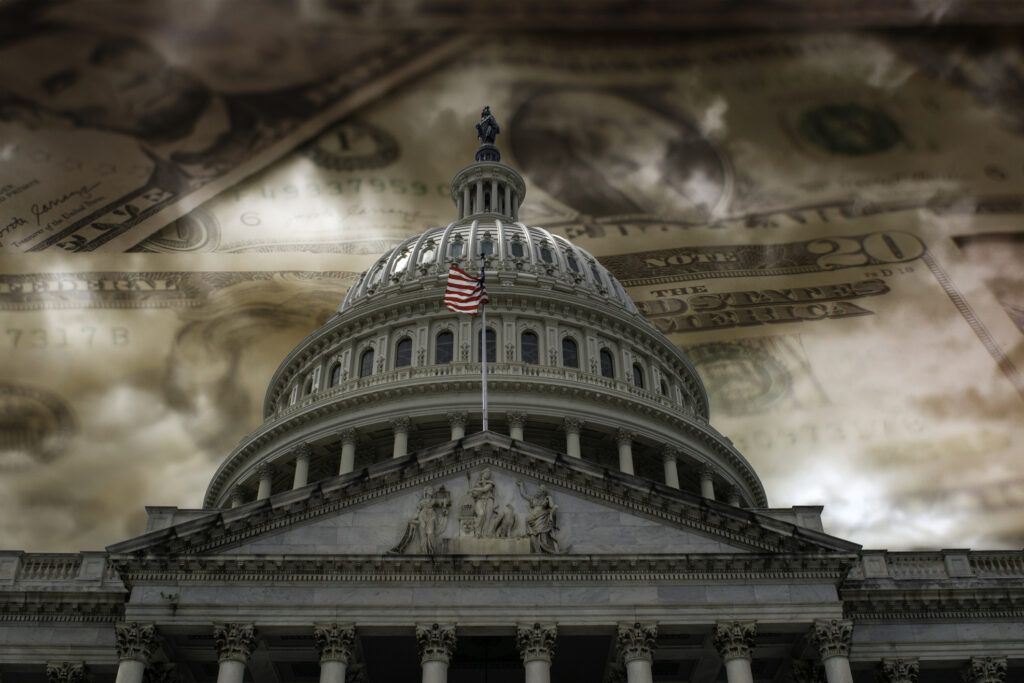Hathaway: How did constitutional reform become your passion?
Schuerer: When I left the Iowa Senate in 2004, I felt ineffective representing the citizens of my district. When we passed legislation at the state level, the established bureaucracy determined whether it was to be implemented or not, or by rulemaking authority circumvented the intent of the laws passed.
As early as 2004, I felt constitutional restoration was needed on the state level as well as the national level. When I was introduced to [Campaign Constitution Chairman, President and Secretary] John M. Cogswell, I saw a light that could effectuate a return to the consent of the governed.
Hathaway: What does the balanced budget amendment (BBA) movement need most to be effective?
Schuerer: My experience within the national Article V movement revealed a lack of coordinated leadership. Working with The Heartland Institute’s Center for Constitutional Reform showed me a way to bring all the competing interests together.
During the past two years, I have built collaboration among groups and individuals advancing an Article V convention of states.
Moving into 2018, the focus needs to be on state legislative leadership and individual state legislators. Coming alongside them and encouraging the power granted in the Constitution for states working in union can influence the nation’s policy and direction.
As a person who loves this country, I will do whatever it takes to share this message, with any and all who will listen.
Hathaway: In September 2017, the Arizona Legislature hosted a national planning session to authorize rules and procedures for a future national amendment convention. Planning for a national convention must have felt like a big responsibility for the 72 lawmakers who attended. How would you describe the mood and atmosphere of the assembly?
Schuerer: My experience at this planning convention confirmed the virtue of the delegates sent by the states and their wisdom to uphold the principles of the Constitution.
The New Hampshire delegation would put their lives on the line to guard against a runway convention, and the delegates from Oklahoma, Tennessee, and Arizona would stand with them.
The decorum and atmosphere of the planning convention were like a legislative session: ordered, professional, and congenial, and not like the rancorous setting of a political convention.
This should encourage all states to attend even if the state has not passed an Article V application.
Hathaway: What were the most important reasons for the Arizona session?
Schuerer: There have been numerous planning meetings, simulations, conferences, and workshops to prepare Americans, state legislators, and groups advancing an Article V convention of states.
Arizona’s call for a planning convention dealt with the objections, soothed concerns, and allowed legislators to meet face-to-face with state leaders regarding the operation of an Article V Convention of States.
Hathaway: What is the current state of the movement, and what is the outlook for 2018, with resolutions from 34 states needed to call a convention?
Schuerer: The Balanced Budget Amendment Task Force entered the 2017 state legislative year with great expectations, following the Trump election and the number of Republican governors and legislature majorities growing.
Twenty-eight states had active applications, with the goal of adding four to the number—Arizona, Idaho, Wisconsin, and Wyoming—bringing the number of active applications to 32.
Arizona and Wyoming approved the BBA application resolution. Maryland, New Mexico, and Nevada rescinded applications, making a net loss of one and bringing the number of active applications to 27. Recently, Wisconsin approved the BBA application, returning the total to 28.
Moving into 2018, there is very little margin. Idaho, Kentucky, and South Carolina are a must, bringing us to 31 active applications.
Montana will likely join in when it gets that close, to 32. Minnesota and Virginia are tough calls because of internal political disagreements on the issue of an Article V amendment convention. Washington state and Maine are anyone’s guess.
That brings the Balanced Budget Amendment Task Force and the national Article V movement to 32 states by the end of 2018.
Hathaway: What events led to the balanced budget amendment’s sudden popularity?
Schuerer: The renaissance of the national Article V Movement began with the 2008 election of President Obama with an unrestrained Democratic Party-held Congress and the 2010 birth of the modern Tea Party movement. These events set a spark under the existing BBA state applications, and it was “game on” across the country.
A balanced budget amendment to the Constitution is the first step in reining in an all-powerful, all-consuming central bureaucratic government that our founding document attempted to guard against.
We as citizens of the United States have the right and duty to bring about responsible reform to our founding document, reflecting the values of the people and the nature of free and independent states. We know what needs to be done. All we need is the courage to just do it.





